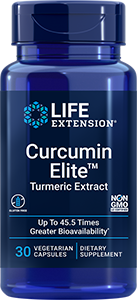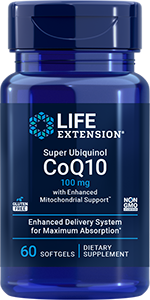
12 Cellular Health Supplements You Should Know About
Published: October 2024
When it comes to maintaining the health of your whole body, it's easy to lose sight of the small details in favor of the big picture: your heart, your brain, your liver, and those other "broad brushstrokes" organs. But we may be overlooking something important in the process: our cellular health.
We are made up of cells (over 30 trillion, in fact!) and their healthy function is essential to our overall well-being. But how do you make sure you're doing everything you can to prioritize your cellular health?
Beyond focusing on the basics—getting enough sleep, eating well and exercising—there are specific supplements that can help ensure your cells are getting the support they deserve.
Let's get going!
What is cellular health?
Our bodies are made up of complex systems, but at the center of it all is the humble cell. Going back to high school biology for a second, cells are considered the basic building blocks of life. After all, all living things are made of cells.
And like we mentioned, the human body contains a nearly incomprehensible 30 trillion cells, each one diverse in their size, structure, number and function. Some common cell types include stem, muscle, bone, cartilage, blood, sex and fat cells.
These small but fundamental organisms provide structure for the body, take in nutrients from food, convert those nutrients into energy, and carry out a number of other unique head-to-toe functions. Most cells also contain DNA, the body's genetic material, and can even make copies of themselves. We may not notice our cells when they're doing what they're supposed to, but when things are off-kilter, our health can be compromised in a variety of ways.
Pro tip: A small amount of DNA can also be found in the mitochondria, structures that play a crucial role in cellular energy production. We need those mitochondria to have the energy we need to thrive, or cellular function can lag, too.
All this to say, making sure that every cell is a healthy cell is important!
What are the best cellular health supplements?
Given the importance of mitochondrial function and cell health, which supplements should you consider taking? Turns out, you might already have a few in your rotation!
Here are 12 options to help take your cell health to the next level:
1. B vitamins
Let's start with a big one: B vitamins. While you may know B vitamins as essential for energy, brain health and more, you probably didn't know that those benefits start in the cells. B vitamins are critical for a number of cellular metabolic pathways. To get a little more specific, B vitamins support the processes of catabolism, breaking down food to release energy (a.k.a. energy production), and anabolism, which uses energy to build molecules that help the body's cells function.
The vitamin B family is made up of eight different types and can only be obtained through diet or supplementing, so finding a good B-vitamin complex is a great way to get all these vital nutrients in one formula.
2. CoQ10
Now, let's turn to coenzyme Q10, more commonly known as CoQ10. CoQ10 is a compound that's concentrated in some of your more high-energy organs, including the brain, liver and heart and is required for healthy mitochondrial function.
By and large, our cells require a steady supply of adenosine triphosphate (ATP), our body's energy source at the cellular level. Because CoQ10 is involved in mitochondrial energy generation, CoQ10 is essential for maintaining the health of your cells. But, since CoQ10 levels decline with age, supplementing is important to ensure you're getting enough. Look for CoQ10 in the ubiquinol (reduced) form for better bioavailability.
3. Curcumin
While curcumin has been used in Ayurvedic regimens for centuries and touted for promoting a healthy inflammatory response, research has also found that this "magic golden spice" can benefit your cells.
How? Curcuminoids, the active ingredient in turmeric, can influence different cell signaling pathways and provide cellular protection against free radicals. When picking your curcumin supplements, it helps a great deal to choose a formula that delivers more bioavailable curcuminoids, so it's easier for the body to use.
4. Milk thistle
Milk thistle, a liver health superstar, can also benefit your cells. After all, your hard-working liver is full of them! Systematic reviews of milk thistle have found that this supplement supports healthy liver enzyme levels, benefiting overall liver function.
5. Magnesium
The mighty mineral magnesium, too, is well-known for the different hats it wears—including how it benefits cell health. In fact, magnesium is involved in over 300 biochemical reactions in the body, including cellular energy production, protein synthesis, cell protection and much more!
Many people do not consume enough of this vitally important mineral, which is why you should consider supplementing.
Explore Our Best Anti-Aging & Longevity Supplements
6. Glutathione
As one of the main antioxidants in the body, this compound contributes to several biochemical reactions. It protects cells from oxidative stress, helps break down compounds that contribute to oxidative stress and helps other antioxidants revert to their active forms so they can function optimally.
Pro tip: If you choose to supplement with glutathione, note that it tends to work best with a precursor like N-acetyl-cysteine (NAC).
7. Probiotics
There's a whole world inside our GI tracts. It's home to cellular microorganisms that make up your microbiome. And even though it may sound gross, your microbiome plays a really important role in your overall health.
Probiotic supplements help support a healthy microbiome, and they can be a secret weapon in your nutrition regimen. Bear in mind that different strains target different health needs.
8. Alpha-lipoic acid
Alpha-lipoic acid (ALA) is considered the "universal antioxidant," and is well-known for supporting healthy mitochondria and cell energy and fighting oxidative stress. It occurs in different forms, but when supplementing, look for ALA in its "R" form. This is the biologically active form, the one native to the body and is responsible for its healthy properties.
9. Vitamin C
Vitamin C hardly needs an introduction, as it's one of the most popular supplements around. Vitamin C is found in high concentrations throughout the body, including the cells and tissues, with the highest concentrations of vitamin C found in white blood cells, the pituitary and adrenal glands and the brain.
Indeed, this vitamin lives up to its hype. It plays an essential role in protein metabolism and collagen and neurotransmitter synthesis. For all its importance, however, the body doesn't make vitamin C on its own and any excess is filtered out, so you have to get it daily from your diet and supplements.
10. Fish oil
You can't have a strong building without the right materials to build it, and the same goes for healthy cells, which is one reason why many turn to fish oil to meet their body's need for healthy fats like omega-3. Dietary fats like EPA and DHA are considered to be one of the most essential components of every living cell. Beyond their well-known heart health benefits, omega-3 fatty acids support cell membrane structure, crucial for proper cellular function and cellular energy.
11. Quercetin
The plant flavonoid quercetin is available from many dietary sources and is also important for maintaining healthy cells. This powerful compound promotes immune and cardiovascular health, helps protect against oxidative stress and supports a healthy inflammatory response. Though you can get a reasonable amount from your food, a good quercetin supplement can also be a valuable addition to your nutrition regimen.
Pro tip: Combine your efforts and choose a high-quality supplement that contains both vitamin C and quercetin.
12. Resveratrol
Resveratrol is most well-known as the "wine polyphenol" due to its presence in red grapes and red wine. This compound can benefit the body in several ways. It supports heart and brain health, protects against oxidative stress, and perhaps most important to your cells, promotes healthy cellular aging.
While you may think it's a great excuse to grab another glass of wine at dinner, you might want to swap your glass for a more well-absorbed and bioavailable form of the nutrient. Supplementing can ensure you get the most out of resveratrol's healthy aging properties, no calories or alcohol required!
How else can I support my cellular health?
Keeping those little machines operating at their best is an ongoing effort. And while supplements are an important part of keeping your cells healthy, they're just one piece of the puzzle. They won't help much if you don't have the other parts of your life optimized.
Here are a few ways to keep your cells in top shape:
-
Eat a healthy diet
—Nourishing your body with whole foods is key to nourishing the health of your cells, too. Prioritize plant-based foods and healthy fats alongside a moderate intake of poultry, fish and dairy. -
Protect against environmental factors and other toxins
—Be mindful of your environment. Try to avoid areas with poor air quality, avoid smoking, drink alcohol in moderation and don't overdo your time in the sun. -
Get refreshing and restorative sleep
—Quality sleep influences every part of your life and plays a key role in refreshing your mind, body and cells daily. -
Work out regularly
—Engaging in daily exercise is not only beneficial at the physical and mental level, but at the cellular level, too. Try and incorporate daily movement into your daily life. -
Avoid stress
—This one may be the most important. Unmanaged stress impacts the entire body—including your cells. We know this is easier said than done, though! Try to practice stress management so you aren't putting extra undue stress on your cells.
About the Author: Trent Fowler has been covering health and wellness for more than a decade. A technical writer and content specialist, he is also the co-host of the Futurati Podcast and writes about fintech, AI, and other emerging technologies.
References
- Alesci A, et al. "Resveratrol and Immune Cells: A Link to Improve Human Health." Molecules. January 2022. https://www.ncbi.nlm.nih.gov/pmc/articles/PMC8778251/
- Calderon Martinez E, et al. "Impact of Silymarin Supplements on Liver Enzyme Levels: A Systematic Review." Cureus. October 2023. https://ncbi.nlm.nih.gov/pmc/articles/PMC10667129/
- Chow C, Laskey RA. "The structure of biological molecules." Britannica. September 2024. https://www.britannica.com/science/cell-biology/The-structure-of-biological-molecules
- Giustarini D, et al. "How to Increase Cellular Glutathione."Antioxidants (Basel). May 2023. https://www.ncbi.nlm.nih.gov/pmc/articles/PMC10215789/
- Hanna M, et al. "B Vitamins: Functions and Uses in Medicine." Perm J. June 2022. https://www.ncbi.nlm.nih.gov/pmc/articles/PMC9662251/
- Hidalgo-Gutierrez A, et al. "Metabolic Targets of Coenzyme Q10 in Mitochondria." Antioxidants (Basel). March 2021. https://www.ncbi.nlm.nih.gov/pmc/articles/PMC8066821/
- Kar A, et al. "Omega-3 fatty acids mediated Cellular signaling and its regulation in Human Health." Clinical Nutrition Open Science. December 2023. https://www.sciencedirect.com/science/article/pii/S266726852300058X
- Laires MJ, et al. "Role of cellular magnesium in health and human disease." Front Biosci. January 2004. https://pubmed.ncbi.nlm.nih.gov/14766364/
- Mizuno K, et al. "Ubiquinol-10 Intake Is Effective in Relieving Mild Fatigue in Healthy Individuals." Nutrients. June 2020. https://www.mdpi.com/2072-6643/12/6/1640
- O'Mahoney LL, et al. "Omega-3 polyunsaturated fatty acids favourably modulate cardiometabolic biomarkers in type 2 diabetes: a meta-analysis and meta-regression of randomized controlled trials." Cardiovasc Diabetol. July 2018. https://pubmed.ncbi.nlm.nih.gov/29981570/
- Saini R. "Coenzyme Q10: The essential nutrient." J Pharm Bioallied Sci. July 2011. https://www.ncbi.nlm.nih.gov/pmc/articles/PMC3178961/
- Stein WD, Bernfield MR. "The structure of biological molecules." Britannica. September 2024. https://www.britannica.com/science/cell-biology/The-structure-of-biological-molecules
- Tang SM, et al. "Pharmacological basis and new insights of quercetin action in respect to its anti-cancer effects." Biomedicine & Pharmacotherapy. January 2020. https://www.sciencedirect.com/science/article/pii/S0753332219352266
- "Curcumin (Curcuma, Turmeric) and Cancer (PDQ®)–Health Professional Version." National Cancer Institute. https://www.cancer.gov/about-cancer/treatment/cam/hp/curcumin-pdq
- "Essential Fatty Acids." Data on file.
- "Lipoic Acid." Data on file.
- "Magnesium." Data on file.
- "Probiotics." National Institutes of Health. November 2023. https://ods.od.nih.gov/factsheets/Probiotics-HealthProfessional/
- "Resveratrol." Data on file.
- "Vitamin C." National Institutes of Health. March 2021. https://ods.od.nih.gov/factsheets/VitaminC-HealthProfessional/
- "What is a cell?" MedlinePlus. https://medlineplus.gov/genetics/understanding/basics/cell/
- "What is DNA?" MedlinePlus. https://medlineplus.gov/genetics/understanding/basics/dna/
Always be in the know!
Access the latest deals, wellness news, expert health tips & more!












